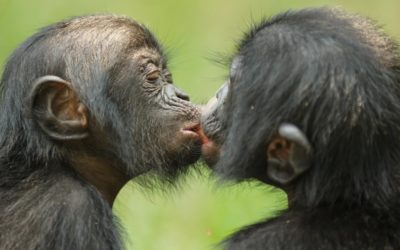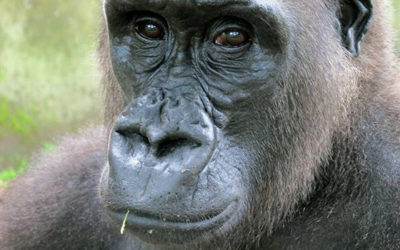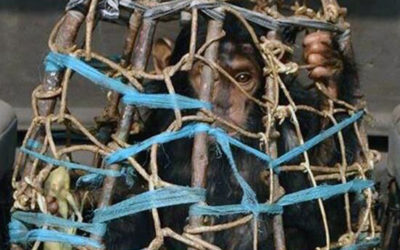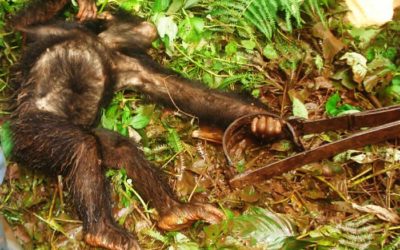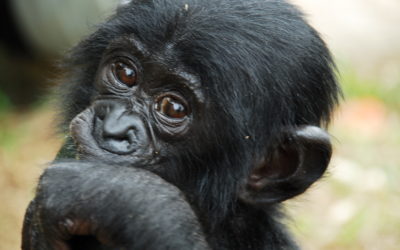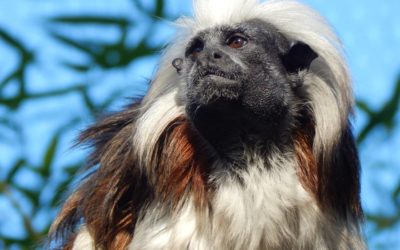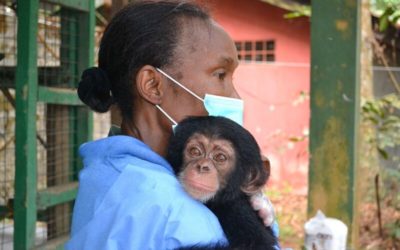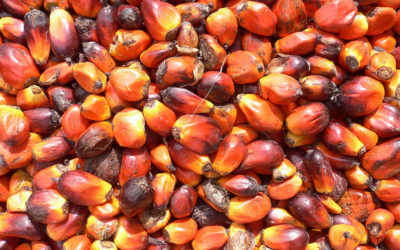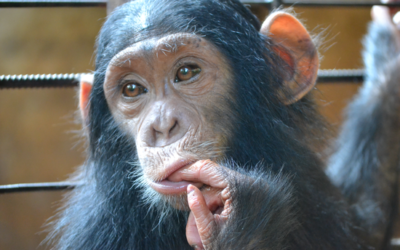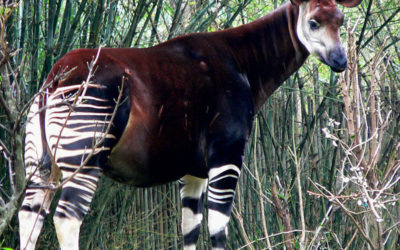New Study Shows the Impact of PASA Members on Primate Protection
PASA wildlife centers are making a difference through education, community development, animal rescue and long-term care.
By Natasha Tworoski
Across the continent of Africa, wildlife sanctuaries are working hard to better the lives of their native animals. From improving electrical lines to protect monkeys from accidental electrocution to educating communities about the misconceptions of traditional medicine using ape bones, the responsibilities of a sanctuary extend well beyond helping injured and orphaned animals. While each sanctuary faces unique trials, having a means to communicate and share knowledge of successes and challenges with one another can save each sanctuary effort and resources. This is where the Pan African Sanctuary Alliance (PASA) comes in.
Founded in 2000, PASA is a non-profit charity with 23 member sanctuaries across 13 African countries. While PASA’s members are very diverse, they share a main goal: to provide a safe and secure home for African primates in need. Joining the Alliance requires complying with an extensive list of requirements including organizational planning, a strong financial base, high standards of veterinary treatment and animal care, and conservation education programs.
PASA advocates for its member organizations, provides vital support, and works with them to raise awareness internationally about wildlife conservation and animal welfare. The combination of PASA’s global network and its member organizations’ local expertise and experience uniquely positions the Alliance to produce lasting changes to protect Africa’s great apes and monkeys.
In December 2016, PASA completed an extensive survey of its member wildlife centers. The results show that the centers conduct a wide range of education programs, community development projects, and other work to protect wild primate populations, in addition to rescuing animals from wildlife trafficking and the bushmeat trade and providing long-term care.
Since many of the countries that PASA members reside in are impoverished, providing job opportunities helps sanctuaries to integrate into the local communities. PASA members currently employ 700 African staff. By supplying stable, fairly waged positions and investing in training staff, over 3,000 animals have found a safe, secure place to call home at a PASA sanctuary.
The 22 wildlife centers’ education programs reach more than 500,000 people every year, and their sanctuaries host 153,000 visitors annually. Most of the centers have developed income-generating projects in neighboring communities and improve local agricultural practices, and many provide job skills training. These programs empower communities to break the cycle of poverty so they will no longer be compelled to illegally hunt primates or exploit protected land.
PASA’s members also protect wild primates more directly: most regularly send forest patrols into wildlife habitat, and members in seven countries have successfully worked with government agencies to establish new national parks and other protected areas.
This has all been accomplished in extremely challenging conditions. Fewer than 40% of PASA member organizations members have consistent access to the internet, fewer than 60% have consistent phone connections, and close to 20% lack reliable access to water.
The report on the census of PASA member organizations is available online (please click on “2016 PASA Census Report”).
To learn more and to support primate centers in Africa, please visit PASA’s website.
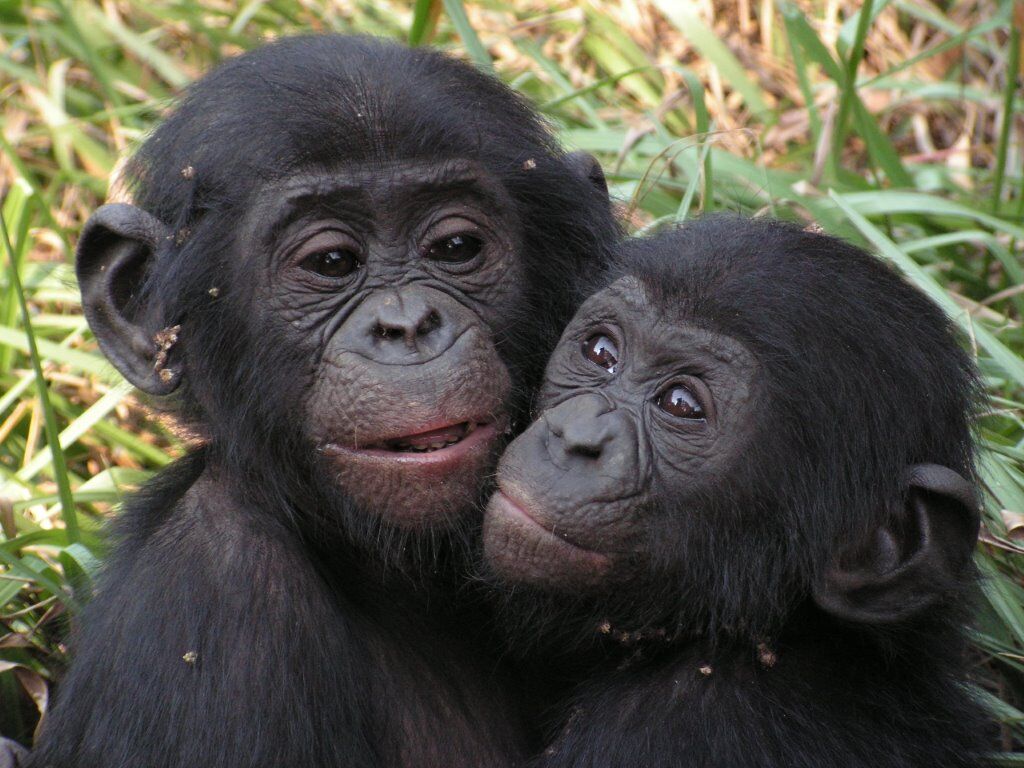
Two young bonobos at PASA member Lola ya Bonobo. Like many primates at PASA sanctuaries, they were rescued from the black market pet trade.
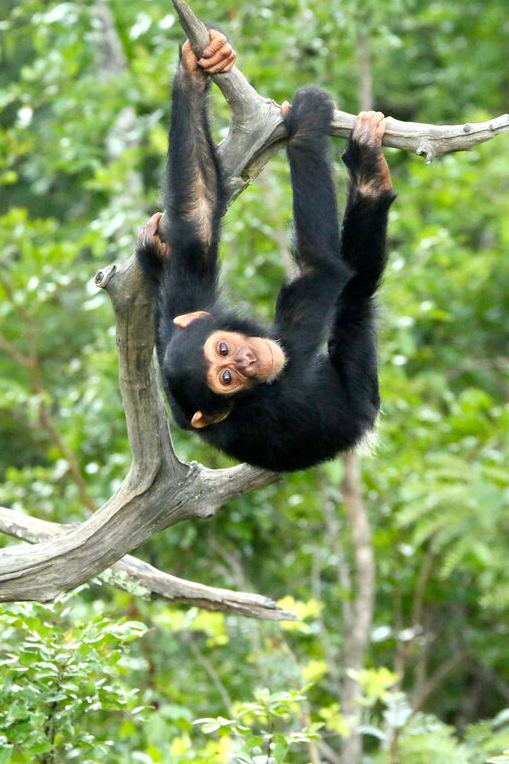
PASA member Chimfushi offers a safe haven to 120 chimpanzees.
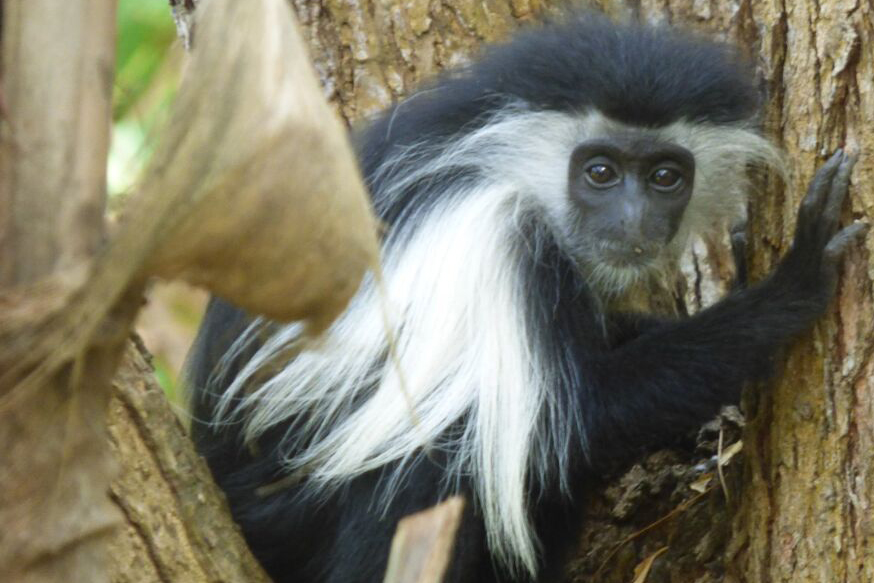
A young Angolan Colobus residing at Colobus Conservation in Kenya, a PASA member that rescues monkey species such as baboons, sykes and vervets.
Next Posts
Celebrate the Unknown Great Ape on World Bonobo Day!
Celebrate the Unknown Great Ape on World Bonobo Day! Our closest relatives desperately need you to save them from extinction. There may only be 15,000 left. By Natasha Tworoski Finally! A reason for everyone, single or not, to celebrate February 14th! 2017 will mark...
How Can You Reduce Climate Change by Helping Protect Great Apes?
How Can You Reduce Climate Change by Helping Protect Great Apes? New Data Show that Climate Change Is Causing Massive Tree Die-Offs in Africa By Natasha Tworoski It’s hard to find a place on the planet where scientific evidence isn’t showing global climate change...
Groundbreaking Ivory Ban in China Signifies Good News for All Wildlife
Groundbreaking Ivory Ban in China Signifies Good News for All Wildlife Ban Includes Closure of 34 Processing Factories and 143 Trade Venues By Natasha Tworoski One of Africa’s most iconic animals, elephants have undergone a devastating surge in poaching in the past...
Bushmeat Crisis
Bushmeat Crisis In West Africa and the Congo Basin, Bushmeat is Now the Leading Threatto Great Apes and Monkeys By Natasha Tworoski While the term “bushmeat” can simply stand for any wild animal killed for the purpose of eating its meat, most often in media it is used...
Sanctuaries Unaffected by Political Unrest in Democratic Republic of Congo
Sanctuaries Unaffected by Political Unrestin Democratic Republic of Congo Tensions Remain High As At Least 26 Protesters Are Killed By Natasha Tworoski Tensions have been high this week in the Democratic Republic of Congo, as December 19th marked the end of President...
Empowering Women Through Conservation
Empowering Women Through Conservation Offering Opportunities for Women Is a Responsibility Conservationists Should Consider By Natasha Tworoski Conservation efforts can often carry a despairing feeling of moral conflict, particularly in countries with high levels of...
The Growing Crisis of Great Ape Smuggling
The Growing Crisis of Great Ape Smuggling New Data Shows that Illegal Great Ape Smuggling Is Even More Dire than We Realized By Natasha Tworoski The great ape crisis is rapidly escalating. Eastern gorillas, Western chimpanzees and Bornean orangutans were recently...
The Devastation of Palm Oil is Now Spreading to African Countries
The Devastation of Palm Oil is Now Spreading to African Countries By Natasha Tworoski The overwhelming demand for palm oil is well-known for its horrifying impact in eastern Asia, particularly in Malaysia and Indonesia. However, growing demand means...
Protecting Primates in the Democratic Republic of Congo
Protecting Primates in the Democratic Republic of Congo By Natasha Tworoski The Democratic Republic of Congo is home to three PASA sanctuaries: Lola ya Bonobo, JACK (Jeunes Animaux Confisques au Katanga) and the Centre de Rehabilitation des Primates de Lwiro (CRPL)....
Democratic Republic Of Congo: On the Brink of a New Wave of Violence?
Democratic Republic Of Congo: On the Brink of a New Wave of Violence? By Natasha Tworoski A country that has faced a long history of violence and political instability, the Democratic Republic of Congo (DRC) is teetering on the brink of a new wave of violence. As the...

